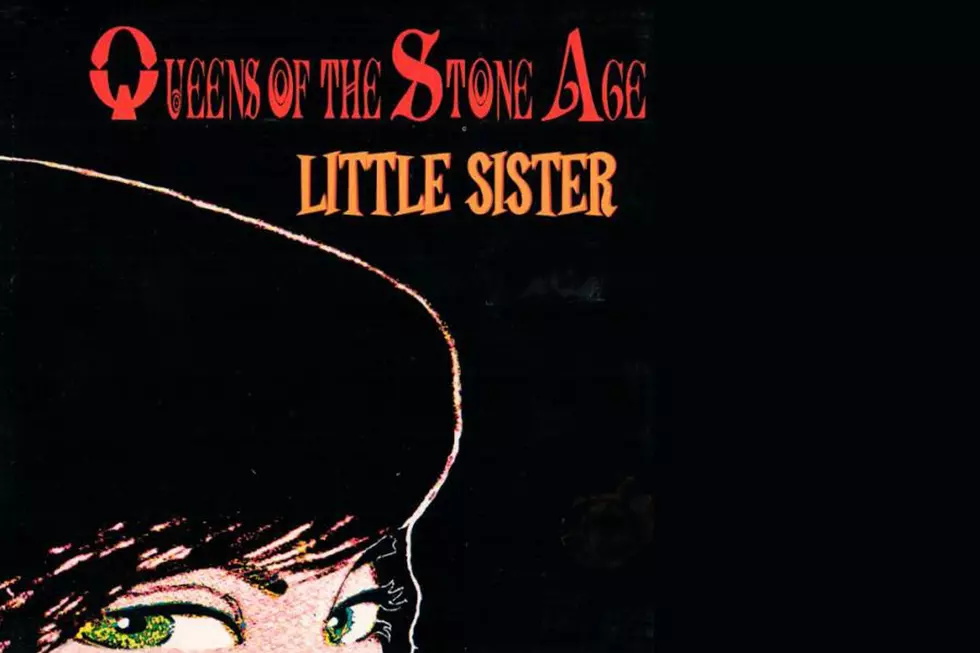10 Years Ago: Queens of the Stone Age Throws Out the Rule Book With ‘Era Vulgaris’
Two years after successfully re-defining a post-fame, post-Nick Oliveri Queens of the Stone Age with Lullabies to Paralyze, Josh Homme threw out his own rule book and significantly opened up the band's sound with 2007's Era Vulgaris.
The mainstream success of 2002's Songs for the Deaf actually sent the band into a difficult period. The creatively restless and fiercely independent Homme felt pressured by his label, who wanted the constantly tinkering artist to stick close to that album's winning formula. Around the same time, he also made the difficult decision to break ties with his longtime bandmate Oliveri, feeling that the hard-partying bassist's unruly behavior had grown to be too much of a burden.
Naturally Homme, who regularly turns down what he calls "stupid stupid money" to reunite his first band, the pioneering and initially underappreciated Kyuss (once telling Uncut, "I actually love that no-one ever saw Kyuss"), didn't bow to the label's Deaf II pressure. Instead, he delivered the dense, moody, concession-free Paralyze.
The album went gold and spawned a hit single in "Little Sister," clearly demonstrating QOTSA could thrive without Oliveri's presence or advice from the A&R department. Point proven, Homme briefly retreated to a less pressurized environment for a while.
“People wanted us to make Songs for the Deaf II, and there was so much personal stuff going on instead of musical stuff,” Homme told Pop Matters. “So I just disappeared for a while, and re-emerged in [side project] the Eagles of Death Metal, which was way funner for me at the time.”
When he reconvened Queens of the Stone Age in July 2006 to record what would become Era Vulgaris, Homme's focus seemingly shifted away from solidifying the band's identity, and more into exploring just how much they were capable of.
As a start, he decided to challenge his own working methods by entering the studio without any prepared songs. “I’ve seen him do that before with the (Homme-led musical collective) Desert Sessions but never with Queens,” longtime Kyuss and QOTSA collaborator Chris Goss, who produced the album, told Uncut. “The Queens of the Stone Age is a business, where he’s the CEO. It’s not run the same.”
"It was a long process," multi-instrumentalist Troy Van Leeuwen told Suicide Girls. "It was the longest I've ever taken to make a record, frankly. I've made records over the process of a year, but this was the first time it's ever been my total focus for that long. This was the first time I've ever done that – total focus for 10 months."
While he admitted that the process was difficult, Van Leeuwan maintains, "It was also definitely enlightening, learning about each other and trying to outdo yourself and trying to prove to the people you're playing with that you belong there."
After nearly a year in the studio with a lineup Homme deemed “fantastic, maybe the best of them all,” Queens of the Stone Age emerged with their most diverse effort to date. Era Vulgaris featured a more open, cleaner sound than Paralyze, with dashes of new wave, electronic and even R&B expanding their already heady mix of punk, metal and rock.
Highlights include the throbbing boogie-metal lead single "Sick, Sick, Sick," the barreling "Battery Acid" and the "official" QOTSA debut of the straight-ahead, no-tricks soul song "Make It wit Chu," which emerged from the Desert Sessions and was already established as a live favorite – as commemorated on the band's 2005 live album and video Over the Years and Through the Woods.
The epic cyborg rock of "Misfit Love" just might be the best example of Homme accomplishing his oft-stated goal of creating dance music that sounds like it was made by robots. The album also features two of the most sophisticated and flat-out lovely songs in the band's catalog, the haunting "Into the Hollow," and the seductive, propulsive "Suture Up Your Future."
Lyrically, Homme casts an unforgiving spotlight on his own generation with "I'm Designer," which features the line "The thing that's real for us is fortune and fame / All the rest seems like work." “It’s not a finger in the face or a judgment, it’s just an observation," he told Pop Matters. "I love this generation. I think we take sort of a blood-sport attitude to people like Paris Hilton. It’s like, 'You’re entertaining. Fine.' But when it’s time to get down to something, get out of the way.”
Perversely, the band also recorded a title track - featuring Nine Inch Nails mastermind Trent Reznor - only to leave it off the album, instead giving it away to fans free as part of a pre-release promotional strategy. "We wanted to give something to our fan-club kids that was good enough to be on the record," Homme explained to Antiquiet. Plus, as he mischievously noted, "I loved watching our record company squirm and go, ‘Our marketing plan!’ when I could’ve gotten Trent to be on the album. I also liked that the title track wouldn’t be on the album."
Six months after the release of Era Vulgaris, Homme caused a lot more than squirming by taking direct shots at the boss of his band's record label in the same Antiquiet interview. "F--- the labels, man; they suck. The last thing they’re stripping down is their own expense accounts and s---. I mean, Jimmy Iovine of Interscope Records takes a private jet or rides first class to tell a band they don’t get tour support. ... I THINK OF INTERSCOPE AND ALL THESE LABELS AS THE BIGGEST F---ING IDIOTS ON THE PLANET. And print that in capitals, because they can’t do anything to me."
(Perhaps unsurprisingly, the band parted ways with Interscope prior to the release of their next album, 2013's ...Like Clockwork.)
Despite the obvious lack of love between label and band, Era Vulgaris went gold, and spawned three hit singles: "Sick Sick Sick," "3s and 7s" and "Make It wit Chu." The former also earned the band their fourth Grammy nomination. Homme took the industry honor in stride. "I want people to like the music, as many people as are available," he told SF Weekly. "Something like that always feels good. It's not the breath of life or kiss of death of for this band. ... We went one year. We were really interested in high-end free food, and we got that. It was awesome. I like to party, so maybe we'll go to some of those incredible mansion parties."
What seemed less likely was the odds of Homme enduring another 10-month, start-from-scratch process to create the next QOTSA record. “I love this album, but I will never make another album this way again,” Homme told Uncut at the time of its release. “Or at least I don’t think that I will."
Queens of the Stone Age Albums Ranked in Order of Awesomeness
More From Diffuser.fm









